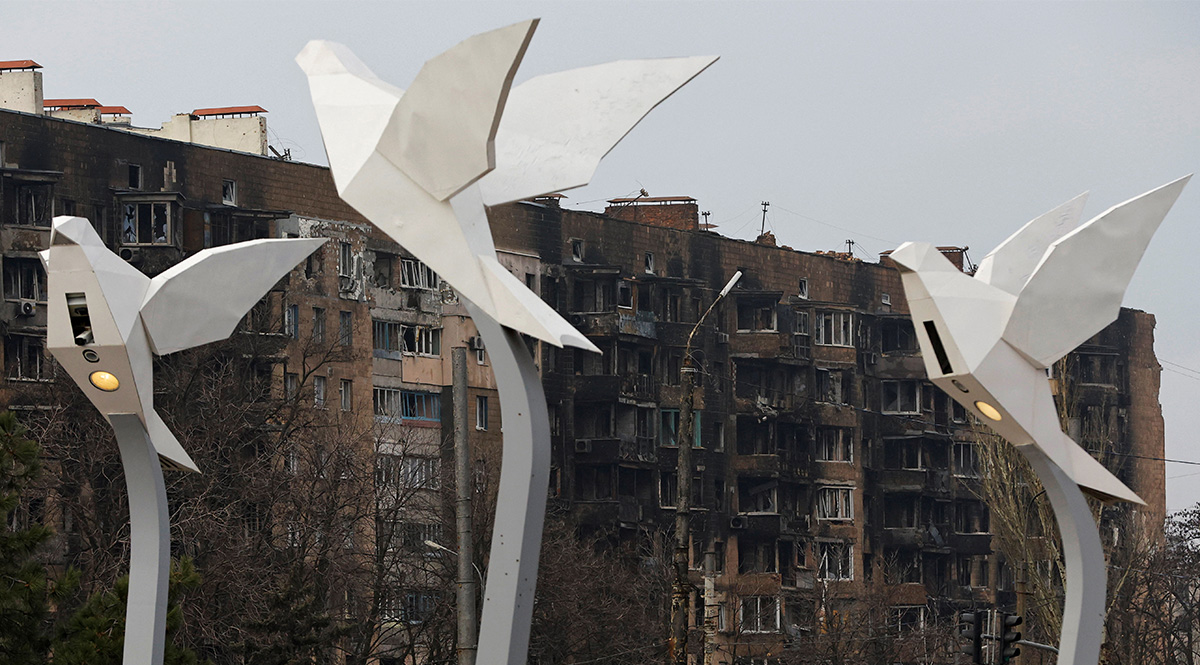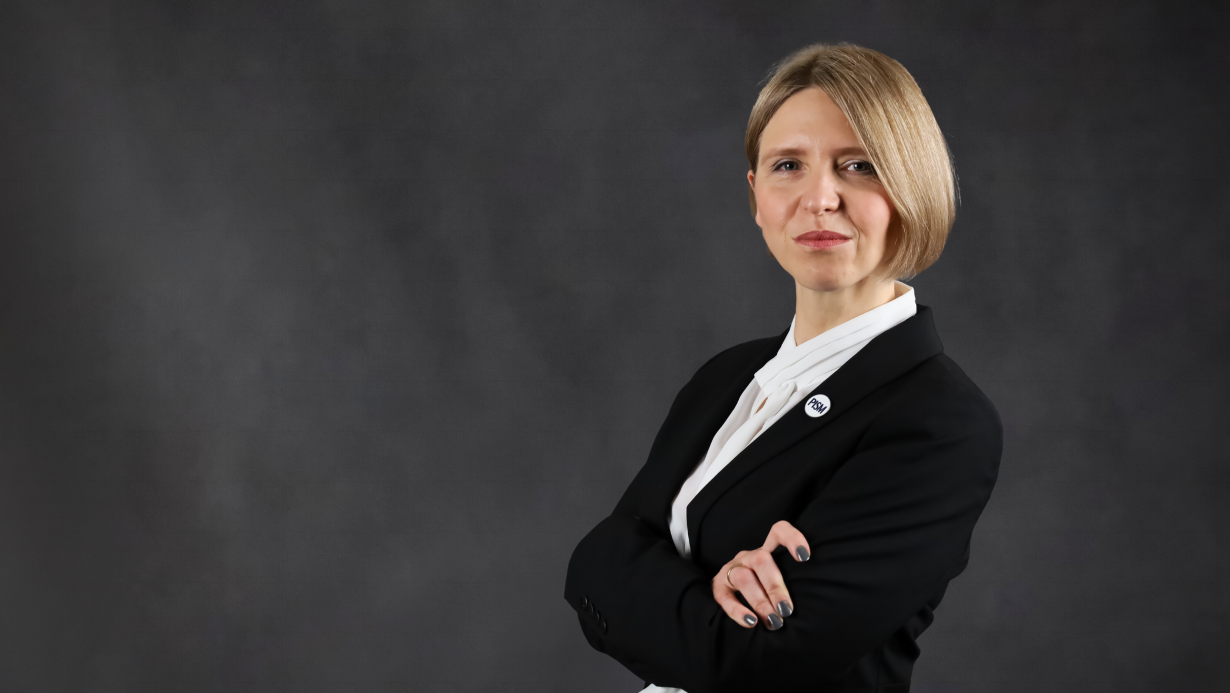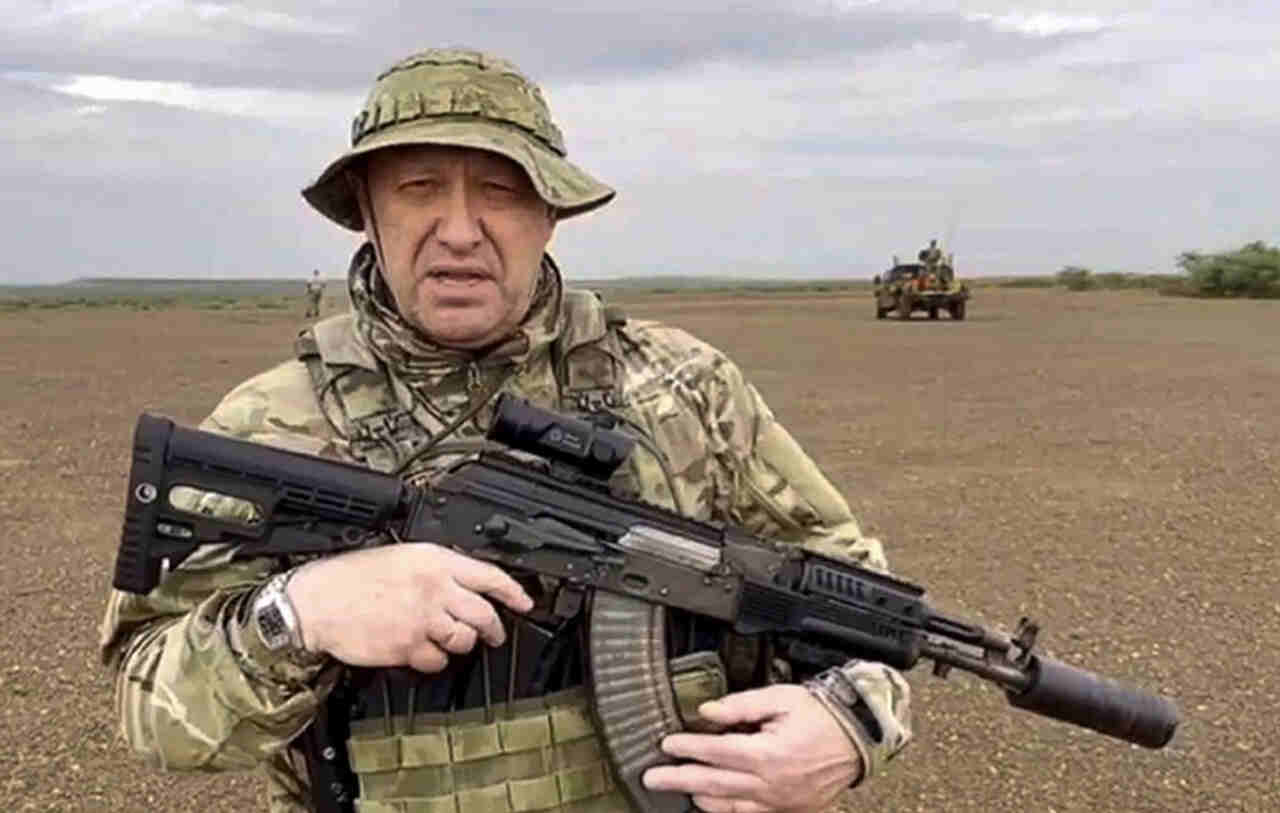Russia Using Peace Propaganda as Path to Victory in Ukraine
The Russian authorities officially declare their willingness to negotiate for the solution of the Russian-Ukrainian armed conflict, but in reality they are not interested in doing so. They want to influence international public opinion to achieve a reduction in Western support for Ukraine. Faux negotiations with Ukraine would give Russia time to further militarise occupied Ukrainian territories and prepare for another attack. Poland could offer to counter Russian peace propaganda within NATO and the EU to maintain transatlantic unity.
 ALEXANDER ERMOCHENKO / Reuters / Forum
ALEXANDER ERMOCHENKO / Reuters / Forum
The Importance of Peace Propaganda for Russia
The Russian government, diplomats, and state media deliver a consistent propaganda message about Russia’s war with Ukraine. This includes three main theses: first, that it is supposedly possible to achieve peace in Ukraine except that the Ukrainian authorities’ lack of political will for peace talks stands in the way; second, the culprits of the protracted war are the states helping Ukraine to defend itself against the Russian invasion; and third, peace is not in the interest of the United States, which has allegedly politically subjugated the Ukrainian authorities and wants to weaken Russia with their help. In this way, the Russian authorities promote the image of Russia as being open to a diplomatic settlement of the conflict. They further argue that Russia was forced to attack Ukraine to pre-empt it from an attack on Russia, creating the impression that a military confrontation in Ukraine is defensive for Russia.
Russian propaganda is systematically adapted to developments on the frontline. With Ukrainian troops going on the offensive and regaining control of half of the occupied territories in autumn 2022, Russia proposed “an immediate ceasefire, a halt to all hostilities and a return to the negotiating table”. The aim was to have Ukraine and the international community recognise the annexation of four Ukrainian oblasts to the Russian Federation. In December 2022, as Ukraine’s resistance persisted, Russian Foreign Ministry spokeswoman Maria Zakharova insisted that “to ensure a lasting and just peace in Ukraine, the West must stop supplying weapons to Kyiv, which in turn must accept the new territorial realities, cease fighting and withdraw troops from Russian territories”. However, even after the failure of the Ukrainian counter-offensive in December 2023, Vladimir Putin stated that “peace will be achieved when Russia achieves its goals”, and added that Russia has done everything to resolve the conflict peacefully. This demonstrates the growing confidence of the Russian authorities that they are capable of winning the war.
Talks between Russia and Ukraine
Since the annexation of Crimea in 2014, Ukraine has continuously but unsuccessfully negotiated peace terms with Russia. After the start of the full-scale Russian invasion in February 2022, it resumed talks with Russia, first in Belarus, then in Turkey. However, the two sides only reached agreement on humanitarian corridors and prisoner exchanges.
Initially, Ukrainian President Volodymyr Zelenski was ready to accept some Russian demands, such as neutral status for Ukraine. However, after the discovery of the crimes of Russian soldiers in Bucha and Irpin (April 2022), the talks were officially discontinued. To avoid speculation spreading on social networks (Tik Tok, Telegram) about allegedly secret agreements between Ukrainian and Russian authorities, on 4 October 2022, Zelensky approved the decision of the National Security and Defence Council not to negotiate with the Russian Federation as long as Putin is its leader.
The Ukrainian president said he sees no willingness on the part of Russia to hold peace talks and is promoting a Ukrainian peace formula, which he is promoting to other countries. The Zelensky Plan has 10 points, including the restoration of Ukraine’s territorial integrity, the withdrawal of Russian troops, the protection of food and energy supplies, nuclear security, and the release of all prisoners of war. So far, more than 60 countries have engaged in talks on the implementation of the Ukrainian peace formula. The Russian side rejects the Ukrainian proposals, and Zakharova called the Ukrainian formula “a set of ultimatums to Russia, justifying the continuation of hostilities”.
The Effectiveness of Peace Propaganda
Russia takes inspiration from the experience of Soviet peace propaganda, which aimed to increase the prestige of the state in the world and at the same time prepare for war (e.g., the September 1939 aggression against Poland). From the late 1920s until the beginning of the Second World War, the Soviet authorities promoted peaceful initiatives, such as the Litvinov Protocol on the renunciation of war as a means of regulating international problems.
In the two years of war since the Russian full-scale invasion of Ukraine in February 2022, Western societies have been largely immune to propaganda efforts about Russia’s alleged peaceful intentions. According to research by the European Council for Foreign Relations, the number of Europeans who wanted “peace” as soon as possible declined from 35% in 2022 to 29% in 2023, while the number advocating “a just peace”, shorthand for Ukraine regaining its territories and Russia to be punished for its aggression, increased, from 22% in 2022 to 38% in 2023. The exception was Hungary, where the government from the start of the invasion promoted a narrative in line with Russian propaganda. Also, in the public debate in the U.S., the alleged Russian desire for a peaceful end to the conflict with Ukraine has become increasingly prevalent, served, for example, by former Fox News presenter Tucker Carlson’s recent interview with Putin.
Ukrainians are sceptical of Russian peace proposals. According to an August 2023 survey by the Ilka Kucheriv Foundation for Democratic Initiatives and the Razumkov Centre, only 23% of Ukrainians are ready to hold talks with Russia even though it is conducting intense attacks. In contrast, 42% of respondents believe that Ukraine should continue the war even if Russia intensifies its missile attacks on more cities.
Many countries in the Global South are embracing Russian propaganda, including claims of Russian goodwill and Ukraine as a subordinate state of the U.S. Outside Europe, Russian propaganda is successful, fuelling the message with arguments about “Western imperialism”. The Brazilian government, while emphasising peace talks, criticises military support for Ukraine as an ineffective way to end the war. China, too, officially echoes Russia’s peace propaganda and promotes its own conflict-resolution plan, which does not guarantee that Ukraine will regain territories occupied by the Russian Federation.
Conclusions
By declaring its willingness to talk, Russia does not see negotiations as a way to achieve peace. Rather, for Russia it is a means to achieve complete victory in Ukraine. The difficulty in understanding Russia’s declared objectives with regard to Ukraine stems from differences in strategic culture, which, in Russia’s case, allows for intentional deception if this will allow it to achieve its real objectives. Putin, who is using the war to stay in power, is not interested in ending it without victory, which would include halting Ukraine’s Western foreign policy course and returning to an international order based on spheres of influence. With its peace declarations, Russia wants, among other things, to force Ukraine to freeze the front, and de facto gain international recognition of Ukraine’s new, truncated borders, as well as to gain time and opportunities to militarise the occupied territories in order to prepare for the next offensive. At the same time, the Russian authorities are convinced that once Russia’s negotiations with Ukraine have begun, representatives of Western countries will be less willing to expand NATO and the EU.
At this stage of the war, Russian declarations that they seek peaceful settlement of the conflict in Ukraine have limited effectiveness. They resonate well only in Russia and in some countries of the Global South. However, if the war continues and military support for it weakens, pressure for a peace agreement with Russia will also increase among Ukraine’s Western partners. Therefore, Poland could propose to strengthen the resilience of Western societies against Russian peace propaganda and counter Russian disinformation with proposals for “a just peace” in Ukraine.





